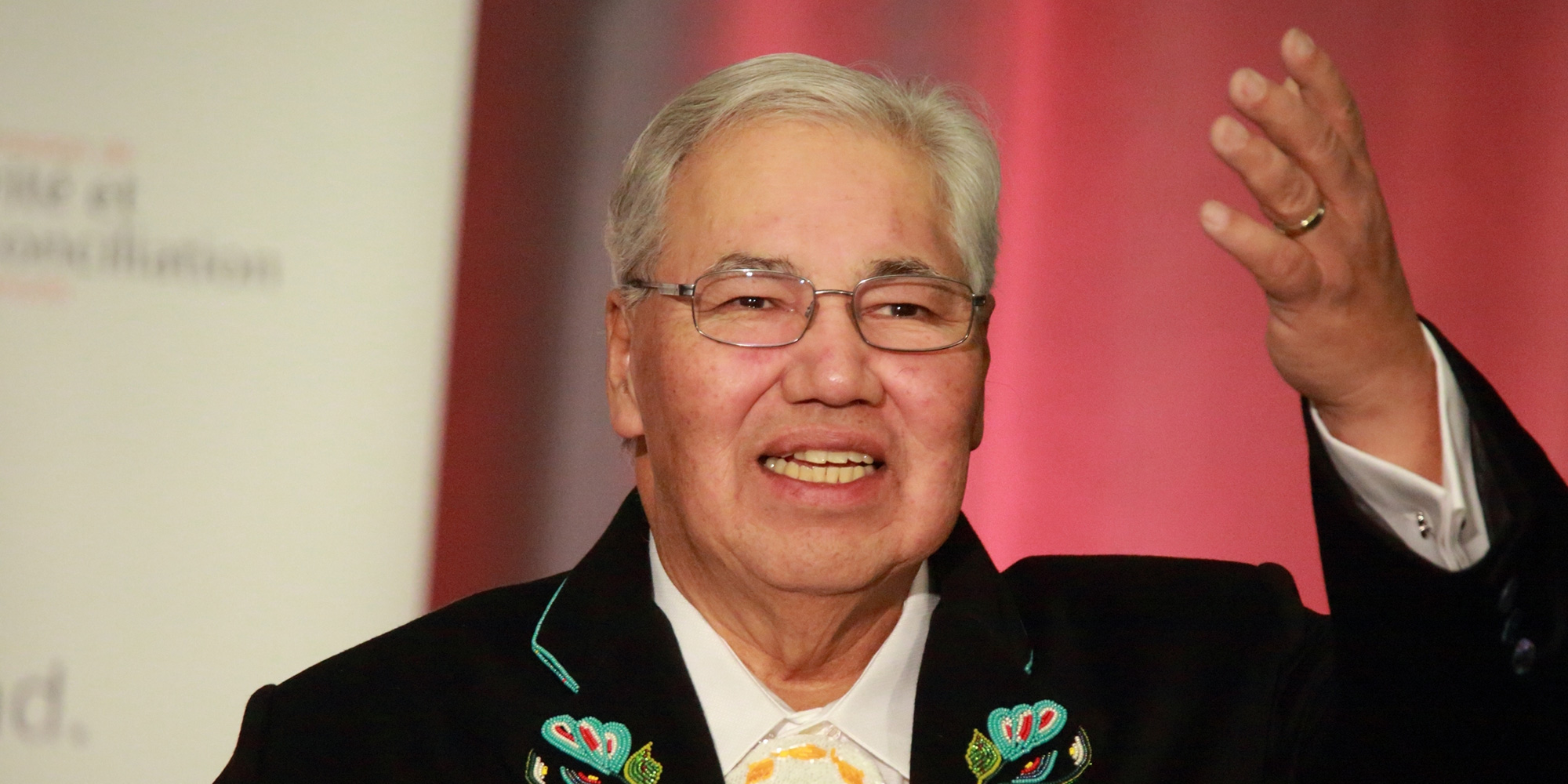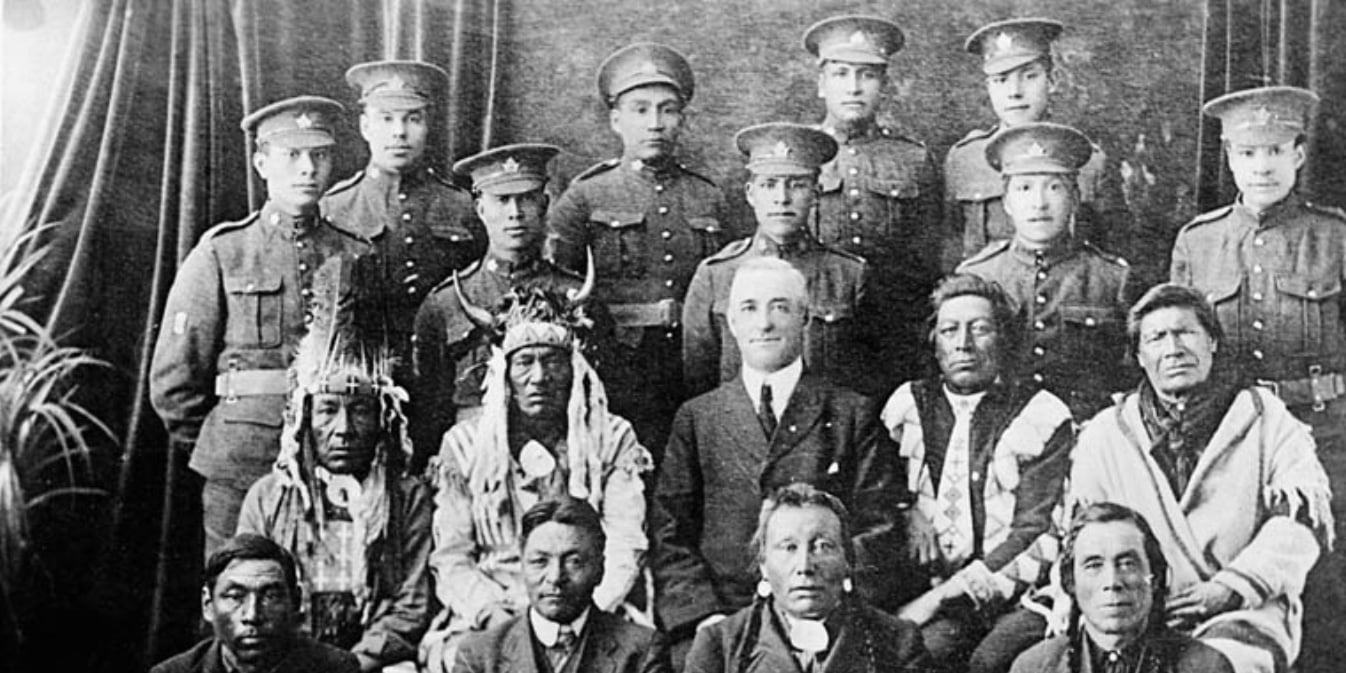Constable Steve Hanuse, Liaison Officer with the Musqueam Indian Band
Constable Steve Hanuse, who is from the ‘Namgis Nation, became the Liaison Officer with the Musqueam Indian Band in 2009. He took some time from his...

The scrip policy is not as well known as other sorry chapters in Canada’s history of relations with Aboriginal Peoples but it should be as it rendered the Métis population largely without the traditional land base that First Nations and Inuit have. The scrip policy, while appearing benevolent was in reality through its convoluted procedures of application, designed to part the Métis from their land.
Section 31 of Manitoba Act 1870 refers to the need to extinguish Métis rights and title yet provides for the families of the "half-breed residents".
31. And whereas, it is expedient, towards the extinguishment of the Indian Title to the lands in the Province, to appropriate a portion of such ungranted lands, to the extent of one million four hundred thousand acres thereof, for the benefit of the families of the half-breed residents, it is hereby enacted, that, under regulations to be from time to time made by the Governor General in Council, the Lieutenant-Governor shall select such lots or tracts in such parts of the Province as he may deem expedient, to the extent aforesaid, and divide the same among the children of the half-breed heads of families residing in the Province at the time of the said transfer to Canada, and the same shall be granted to the said children respectively, in such mode and on such conditions as to settlement and otherwise, as the Governor General in Council may from time to time determine. (emphasis added)
The Dominion Lands Act 1872 (Saskatchewan) opened approximately 80 million hectares of western land to settlement -- an area more than two and a half times the size of England - as part of the push to encourage European settlement in the west. The Métis heads of household, who had been denied land under the Manitoba Act 1870, were offered land in the form of certificates, or scrip.
The land allotments were in parcels of 160 or 240 acres - the catch was that the land grants did not specify the actual parcel, the allotments were located where the scrip was issued and had to be redeemed at Lands Title offices that were frequently hundreds of miles from where the grantees lived. As most of the land offered to the Métis was located in the southern portions of western provinces, this meant that Métis living in the north would have to relocate far, far away from their communities and extended families.
The application process was extremely complicated - born as it was from several acts of Parliament and over a hundred orders in council. The application process was also rampant with an overwhelming amount of complex legal implications that appear as though they were an intentional move to confuse the applicants and obscure the legal implications of what they were giving up when they agreed to scrip.
The onerous travel commitments coupled with the complexity of the process resulted in many scrips simply not being redeemed. Scrips were often sold for a fraction of their value (land was valued at $1 per acre) or traded for goods.
The process was also fertile ground for fraudsters who saw the opportunity to grab valuable land by offering to represent grantees at the Land Title office and sign the required X, never to be seen again by the original bearer of the scrip. The heightened activity of land speculators and fraudsters eventually was recognized by the authorities and an amendment was made to the Criminal Code.
Fast forward to 2013, and the Métis are “celebrating a Supreme Court ruling that found the federal government failed to follow through on a promise it made to the Métis people over 140 years ago.” [1] The Supreme Court ruling did not order any particular remedies but does open the door to land claim negotiations - those 5565 acres promised to Métis children include the city of Winnipeg - or talks toward other forms of compensation from the federal government.
[1] CBC News, March 8, 2013
Featured photo: Indigenous Corporate Training Inc.

Constable Steve Hanuse, who is from the ‘Namgis Nation, became the Liaison Officer with the Musqueam Indian Band in 2009. He took some time from his...

For many survivors of residential schools and their families, the Papal apology was all they hoped to hear, for others, it did not go far enough....

Indigenous Peoples in Canada have fought on the front line of every major battle Canada has been involved in, and have done so with valour and...